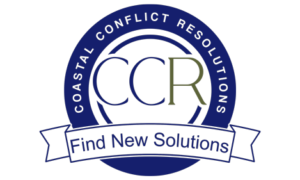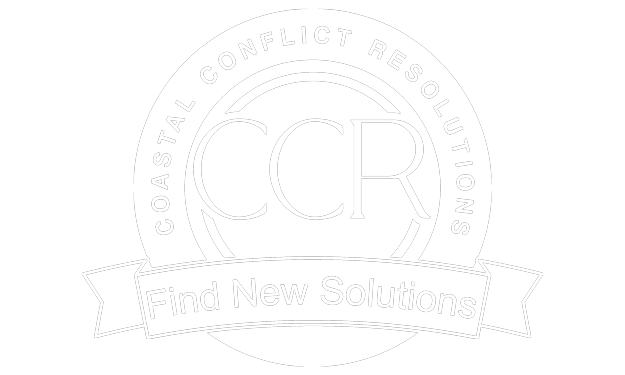Mediating Commercial Disputes: Effective Resolution for Business Conflicts
In the fast-paced and competitive world of business, commercial disputes are almost inevitable. Whether it’s a disagreement between partners, conflicts over contracts, or issues with suppliers and clients, these disputes can disrupt operations and harm professional relationships. Mediation offers a constructive and efficient way to resolve these conflicts, preserving business relationships and maintaining productivity. At Coastal Conflict Mediation, we specialize in mediating commercial disputes, providing a neutral ground for parties to find mutually acceptable solutions. This blog will explore the causes of commercial disputes, how mediators handle opposing parties, and why mediation is an effective approach.
 Causes of Commercial Disputes
Causes of Commercial Disputes
Commercial disputes can arise from a variety of sources, each unique to the business environment and the parties involved. Understanding the common causes of these disputes can help in identifying potential conflicts early and addressing them proactively.
1. Contractual Issues
Contracts are the foundation of business relationships. Disputes can arise when parties interpret terms differently, when there are breaches of contract, or when unexpected circumstances affect the agreement. Common issues include non-performance, payment disputes, and disagreements over deliverables.
2. Partnership Disputes
Partnerships are built on trust and shared goals. However, differences in vision, financial contributions, roles and responsibilities, or profit sharing can lead to conflicts. Disagreements can escalate if not managed properly, potentially threatening the future of the business.
3. Intellectual Property Disputes
In the knowledge-driven economy, intellectual property (IP) is a critical asset. Disputes over IP can involve issues of ownership, infringement, licensing agreements, and the misuse of confidential information. These conflicts can have significant financial and strategic implications.
4. Supplier and Client Issues
Maintaining smooth relationships with suppliers and clients is essential for business continuity. Disputes can arise over quality of goods or services, delivery schedules, pricing, and contract terms. Such conflicts can disrupt supply chains and customer satisfaction.
5. Employment Disputes
Internal conflicts with employees can also impact business operations. Disputes over employment contracts, workplace policies, discrimination, and harassment claims can create a toxic work environment and lead to legal challenges.
6. Financial Disagreements
Financial issues are a common source of conflict in business. Disputes can arise over profit distribution, investment returns, financial mismanagement, and accounting practices. These conflicts can undermine trust and stability within the organization.
How Mediators Handle Opposing Parties
One of the key challenges in mediating commercial disputes is managing opposing parties with conflicting interests and strong emotions. A skilled mediator employs various techniques to ensure that the mediation process is productive and that the parties work towards a resolution.
1. Establishing Neutrality and Trust
The mediator’s neutrality is paramount in gaining the trust of both parties. At the outset, the mediator assures all parties of their impartiality and commitment to facilitating a fair process. By creating a neutral and safe environment, the mediator encourages open communication and cooperation.
2. Facilitating Communication
Effective communication is crucial in resolving disputes. Mediators encourage parties to express their viewpoints, concerns, and interests without interruption. By actively listening and asking clarifying questions, the mediator helps ensure that each party understands the other’s perspective, reducing misunderstandings.
3. Identifying Common Interests
While parties may have opposing positions, they often share underlying interests. Mediators help identify these common interests, which can serve as a foundation for finding mutually acceptable solutions. This approach shifts the focus from adversarial positions to collaborative problem-solving.
4. Managing Emotions
Commercial disputes can be emotionally charged, with parties experiencing frustration, anger, or distrust. Mediators are trained to manage these emotions, ensuring that they do not derail the mediation process. Techniques such as reframing negative statements and focusing on future solutions rather than past grievances help maintain a constructive atmosphere.
5. Encouraging Flexibility and Creativity
Mediation allows for flexible and creative solutions that might not be possible in a more adversarial setting. Mediators encourage parties to think outside the box and consider various options for resolving their dispute. This collaborative approach often leads to innovative and sustainable agreements.
6. Guiding Negotiation and Agreement
Once potential solutions are identified, the mediator guides the parties through the negotiation process. The mediator ensures that discussions remain focused and productive, helping parties evaluate the feasibility and fairness of proposed solutions. The final agreement is drafted with clarity and precision, ensuring that all parties understand and commit to the terms.
The Benefits of Mediation in Commercial Disputes
Mediation offers several advantages over other conflict resolution methods, making it an effective choice for resolving commercial disputes:
1. Preserving Business Relationships
Mediation focuses on collaboration and mutual understanding, which helps preserve professional relationships. This is particularly important in business, where ongoing partnerships and collaborations are vital for success.
2. Confidentiality
Mediation is a confidential process, ensuring that sensitive business information and discussions remain private. This confidentiality protects the reputations and interests of the parties involved.
3. Cost-Effectiveness
Mediation is generally more cost-effective than other dispute resolution methods. It reduces the need for prolonged conflict resolution processes, saving time and resources for all parties involved.
4. Control Over the Outcome
In mediation, the parties involved have control over the outcome. They work together to reach a mutually acceptable agreement, rather than having a decision imposed by a third party. This collaborative approach often leads to more satisfactory and lasting resolutions.
5. Timeliness
Mediation can be arranged and completed relatively quickly compared to other dispute resolution methods. This timeliness helps prevent conflicts from escalating and causing further damage to the business.
6. Flexibility
Mediation offers flexibility in terms of scheduling and process. It can be tailored to fit the needs of the parties involved, making it a convenient option for resolving disputes.
Call (843) 273-0029 Coastal Conflict for Mediation
At Coastal Conflict Mediation, our professional mediators are skilled in facilitating discussions and guiding parties toward mutually acceptable solutions. We are dedicated to helping you resolve your conflicts constructively and efficiently, preserving business relationships and maintaining productivity.




